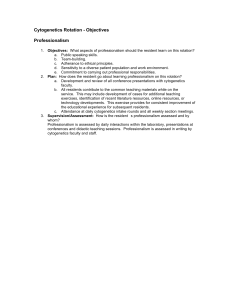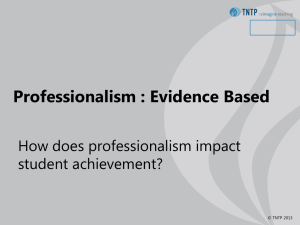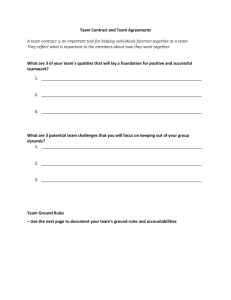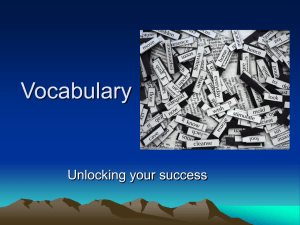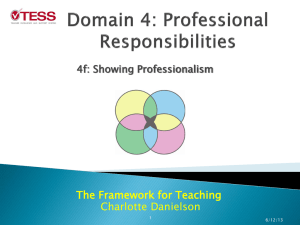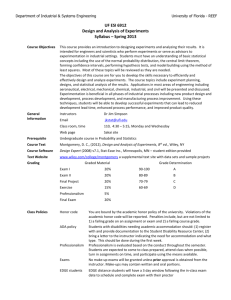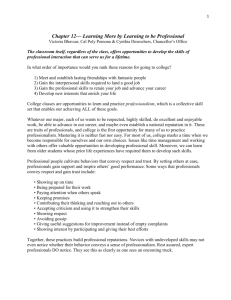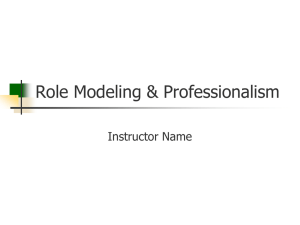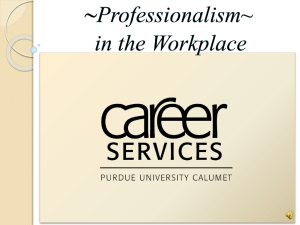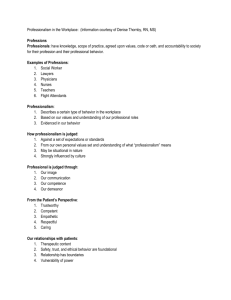Teaching Professionalism - UBC Department of Family Practice
advertisement
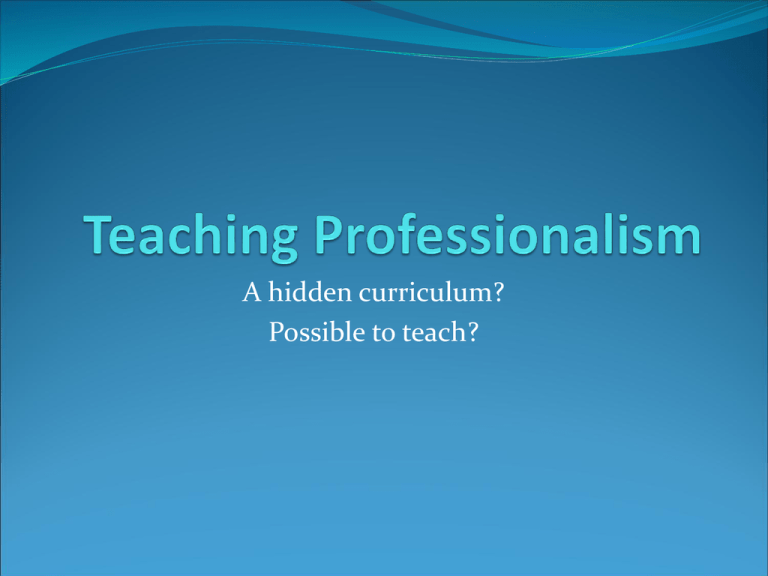
A hidden curriculum? Possible to teach? In the literature, a physician: Subordinates her/her own interest to those of others Adheres to high ethical and moral standards Responds to societal needs Demonstrates humanistic values of honesty, integrity, caring, compassion, altruism, empathy, respect for others and trustworthiness Exercises accountability of self and colleagues Demonstrates continued commitment to excellence and scholarship Deals with high levels of complexity and uncertainty Reflects on his/her actions and decisions. Swick HM, Towards a normative definition of professionalism. Acad Med. 2000;75:612-616 Professionalism An expanded definition for physicians includes the ability to cultivate a relationship with patients, to listen to them, and to commit to their needs as well as to the profession. Harris GD, Fam Med 2004;36(5):31 314-15 Learning to be a professional is part of learning to be a physician. Teaching professionalism is part of a “hidden” but critical curriculum. Definition: What do residents think defines a professional? Honesty and integrity Respectfulness for others Self improvement Communication Insight Collaboration Responsibility Responsive to feedback Reliability and responsibility Compassion and empathy Self awareness, know limits Altruism and advocacy Respect Accountability Interest in others Timeliness - a survey of St. Paul’s Site residents by Dr. Eva Knell Role modelling is very important, especially after correcting a lack of professionalism by a learner. Role Modelling “We learn by practice and the best practice is to follow a model of the virtuous person.” Aristotle 1. CMA Code of Ethics, http://www.cma.ca/index.cfm/ci_id/43892/la_id/1. htm. This short document is also adopted by the BC Medical Association and the BC College of Physicians and Surgeons. Teaching Professionalism Three steps to teaching professionalism include: 1/ Serve as a proficient role model 2/ Create a positive working environment with an efficient, pleasant office staff 3/ Raise the expectations of the learner so he/she modifies behaviour, corrects self-defeating thoughts and attitudes, and pursues excellence in all their learned or accomplished skills. Harris GD, Fam Med 2004;36(6):390-2 How to teach professionalism: 1. Role Model, role model, role model 2. The “one minute preceptor” 3. Discussion groups such as chart rounds 4. Journaling and other self reflective practices. 5. In clinical situations: use the opportunity Putting the patient first Confidentiality Discussing cases in a normal part of medical practice and learning but when is it inappropriate? A few more topics to consider Draping, patient privacy, sexual misconduct Consent Integrity, honesty, commitment, behavior in public Communication with team members, patients and colleagues Right to refuse treatment Right of resident to refuse to participate. And more………… Other Boundary Issues: not loaning or borrowing money, not hiring patients Professional responsibilities e.g. Follow up of patient results, need to keep up to date, follow through and continuity of care, insurance reports, conflict of interest, attendance and being on time Record keeping Respect of other health professionals Respectful language Respecting others time by being punctual and organized Racism, sexism, ageism, etc CONSEQUENCES of unprofessional behavior, how practices are monitored Fallibility : Errors happen How to deal with them Reporting if needed and when to report Self forgiveness Moving on Helping each other Where can help be found? Physician Health Committee (BCMA) Colleagues CMPA College of Physicians and Surgeons Doctors who treat doctors Family, friends, outside interests, faith Consequences Hold the residents feet to the fire!!! Unprofessional behavior must be corrected. There are consequences! If behavior does not change or if you do not feel comfortable, bring it to the attention of the Site Faculty and Site Director Evaluation Evaluation forms ask for your assessment of professionalism and ethical behavior Give feedback EARLY and evaluate this area as rigorously as knowledge and skills. Residents will be your colleagues some day. Don’t wait until they have graduated from our program to discover they have professional issues that need improvement. Would I like this person to treat me or my family? Will they uphold the integrity of the profession? Will my CMPA fees go up if this person graduates? So, in clinical situations: Always consider professional issues Recognize and compliment professional behavior Recognize and correct unprofessional behavior AND role model, role model, role model Thank You This module was written as an aid to the Preceptors in the Postgraduate Family Practice Program at the University of BC. Study credit is available to groups of preceptors who complete the module Please give us your feedback on the module so that we may improve it for others. Email you comments to Dr. Fraser Norrie, Faculty Development, UBC Family Practice Fraser.Norrie@vch.ca
